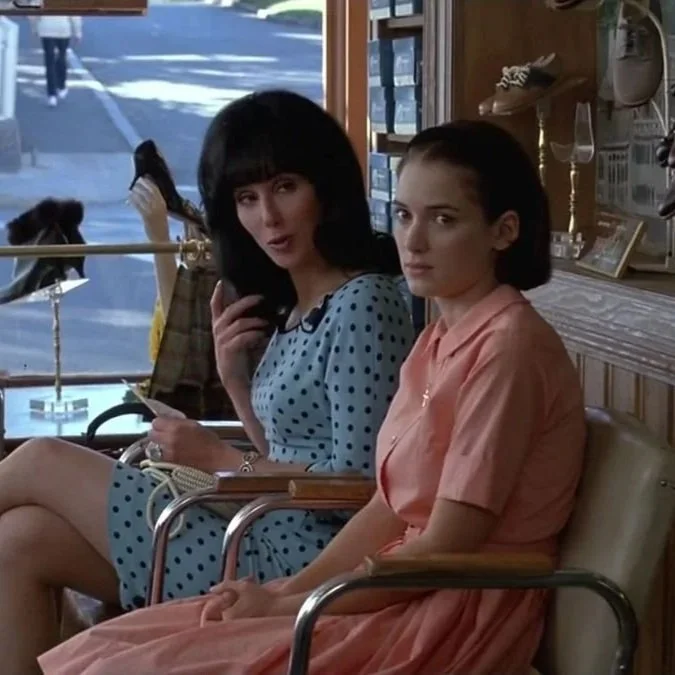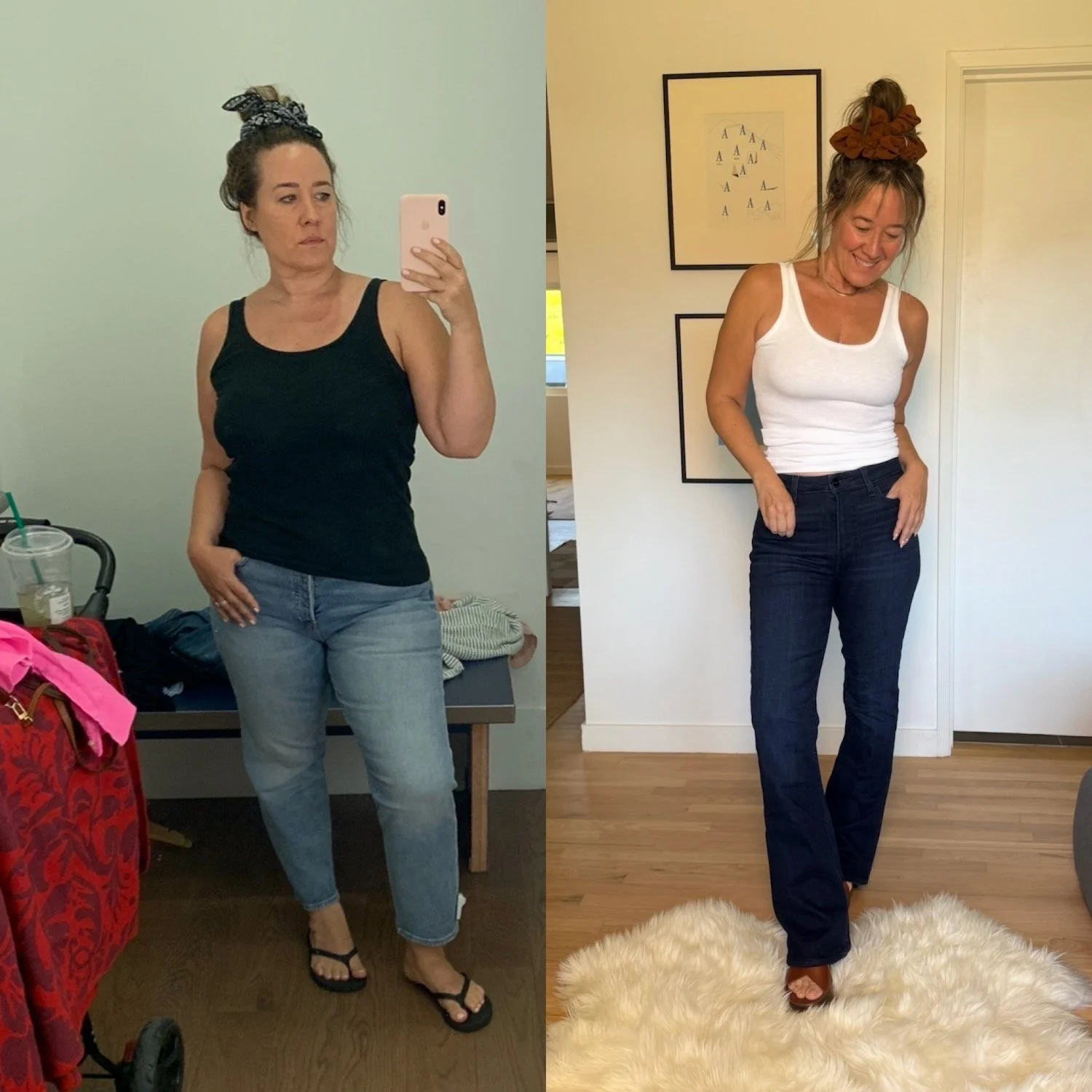Why Do Anxious People Love Scary Movies?
by The Candidly Team
Ok yes, we know not ALL anxious people.
Many of us would rather rewatch soothing episodes of The Great British Baking Show on a loop to distract ourselves from the terrifying news cycle, and would never in a million years subject ourselves to 2 straight hours of the teeth-grinding panic of a scary movie.
And yet, there IS a weird phenomenon in which a subset of very anxious people actually enjoy watching their deepest, darkest fears play out on the big screen.
Is it exposure therapy? Reassurance seeking? Just a need for adrenaline? To find out, we spoke to therapist Amanda White, and asked her 9 pointed questions to get to the bottom of this mystery.
1. We're mostly working off anecdotal evidence, and certainly not ALL anxious people like scary movies, but there are enough who do. Why do anxious people like scary movies?
I’m often surprised by how many people with anxiety tend to like horror movies and/ or true crime. There is also a large group of people with anxiety who cannot tolerate any scary movies or shows and really find comfort in re-watching the same shows repeatedly too.
But for some, scary movies give us a safe place to indulge our worst fears. There is something comforting about watching something we worry about happen in a safe and removed way. We can turn off the TV at the end of the night or completely step away when we are unable to do that with our own anxiety in real life.
2. Can scary movies be a healthy outlet or bucket for our anxious feelings and fears?
People with anxiety tend to struggle a lot with being present. Worrying about the future is so common and can be painful, so watching something intense like a scary movie can jolt us into the present moment and provide us with an escape from our anxious thoughts.
Of course, if this is done excessively, it’s not healthy, but it can be a healthy outlet and escape.
Distraction can be very healthy for mental health struggles if you use it as a short-term solution to coping with painful feelings or worries that you cannot change. This does not mean that I recommend using it as a primary coping skill, but sometimes we have anxiety about something and don’t have the capacity to work through it and need a temporary distraction.
3. Do we watch scary movies as a way to disprove our fears, and feel safe in our own decisions? For example, thinking, "well this person was clearly an idiot to be alone in the woods with no cellphone or protection, and I would NEVER do that, so this couldn't happen to me."
It’s definitely a possibility. I also think that most of us watch movies or shows that are very unrealistic to things that would happen in our real life.
Most scary movies are about extreme situations like you said, being lost in the woods, ghosts, demons, etc, and thus we feel a sense of safety being removed from the fact that many of these triggers aren’t things we experience on a daily basis.
4. For anxious people who like scary movies, is there a common theme or source to their anxiety?
It depends on what types of horror movies you enjoy watching, because different people also find different things scary.
If you enjoy watching movies that are unrealistic (think movies like SAW or The Ring), it could be because you enjoy the escape. If you enjoyed watching Contagion once the Pandemic started happening, it could be because you wanted to learn more about pandemics and experience the relief of watching a neat ending to something that we are currently experiencing.
5. Can watching scary movies give people a sense of justice or closure for their fears and anxieties? Do they give us some sense of certainty and control?
Absolutely. It can feel thrilling to be able to watch a fear of yours play out without having to put yourself at risk or in danger. Studies have also shown that we like to learn more and seek information about our specific fears or anxieties, so it’s a natural extension that we may want to watch movies about it too.
It can feel good if you have anxiety to experience fight/flight and have your heart rate increase and then have it go down and return to baseline once the movie or plot is resolved.
If you live with a high level of everyday anxiety, you may not be used to that feeling of something being resolved or your fight/flight mode returning to baseline. When you hit this baseline, your brain produces dopamine, so it literally feels good.
6. Is there something comforting about a neatly resolved plot in scary movies that helps ease our fears?
Yes, I think that is a huge reason why people like scary movies.
Anxiety thrives on us feeling out of control and like something is unresolved in our life, so if we can watch our fears play out in a neat storyline that is resolved, it can help ease our fears.
Most scary movies also end with the main character triumphing in the end and being okay which can make us feel even better to watch something scary play out but know that things will be okay in the end.
7. Can scary movies be a sort of exposure/immersion therapy? If so, how?
They can be!
Avoiding something we have anxiety or fear about does make it worse over time. A very effective way to work through anxiety is to slowly work on exposing yourself to things that make you anxious and working through it, which allows you to build confidence over time and teaches your brain that how you imagined it in your head doesn’t always line up with reality.
However, exposure therapy is very nuanced and not something you can do by yourself. So, while the basic principles of this can be true with scary movies, it’s not exposure therapy and you should never force yourself to watch scary movies in order to “face your fears.” You should only watch them if you’re genuinely interested in watching them.
8. For people with anxiety, is there any reason NOT to watch scary movies? Are there situations when watching them can make our anxiety worse?
I would not recommend someone watch a scary movie that closely mirrors something that is currently going on in their life or an unresolved trauma. Especially if you are experiencing trauma, and it is not something that happened to you in the past that you worked through, this can trigger you and make your anxiety worse.
For example, if you are going through infertility, watching shows or movies about this will probably make you feel worse. Even if there is a positive ending to it, since you don’t know if you’ll have your happy ending, it can lead you to feel angry and upset. It also could make you feel worse because you may think of something else to worry about or fear that you haven’t thought of.
This is the same reason why therapists recommend NOT googling your anxieties as it can lead you to feel more anxious. I would also not watch scary movies that you don’t want to watch. Don’t force yourself to watch by thinking you can make your anxiety better. Studies have shown that forcing people to watch scary or anxiety provoking shows makes people feel worse.
9. What do you recommend for anxious people who love to watch scary movies in the moment, but then have to sleep with the lights on for 6 days afterward? Can we have the best of both worlds without needing to take 3 Xanax after the movie?
I think you have to be honest with yourself about how much scary movies impact you. Sleep is critically important for people with anxiety, so if your sleep is truly suffering and you feel worse after watching a scary movie for an extended period of time, my recommendation would be not to watch it.
I also think you can be mindful of the topics of movies you watch. For example, I have a huge fear of climate change so I won’t watch apocalyptic movies because then I can’t sleep, but I will watch murder mysteries, and ghost or demon movies.
It may be more helpful to explore different ways you can consume this content that is less immersive. For example, listening to a podcast or reading a book may be less intense and disturb your sleep less than watching a movie.
This article is for informational purposes only. It is not intended to be used in place of professional advice, medical treatment, or professional care in any way. This article is not intended to be and should not be a substitute for professional care, advice or treatment. Please consult with your physician or healthcare provider before changing any health regimen. This article is not intended to diagnose, treat, or prevent disease of any kind. Read our Terms & Conditions and Privacy Policy.







